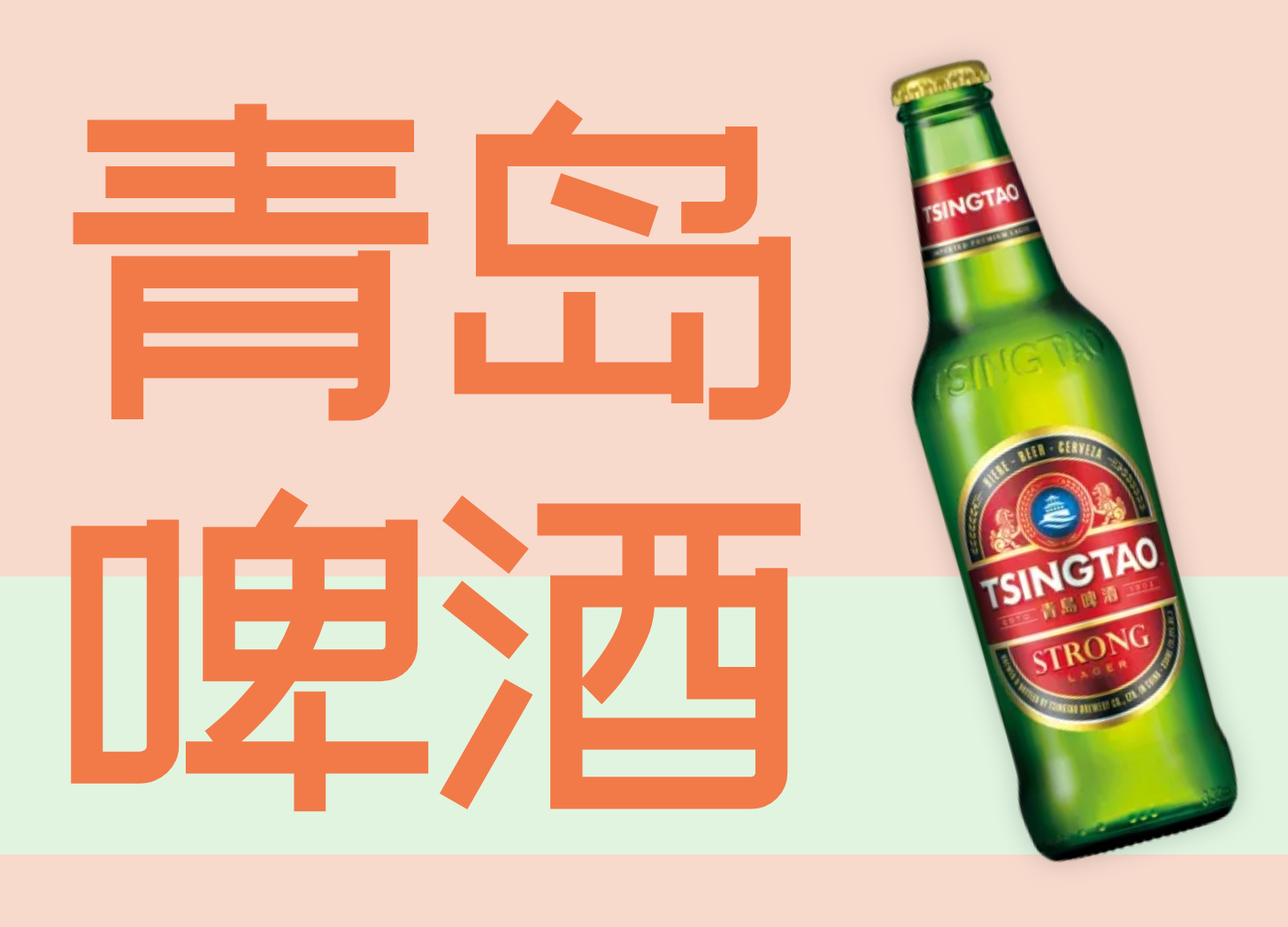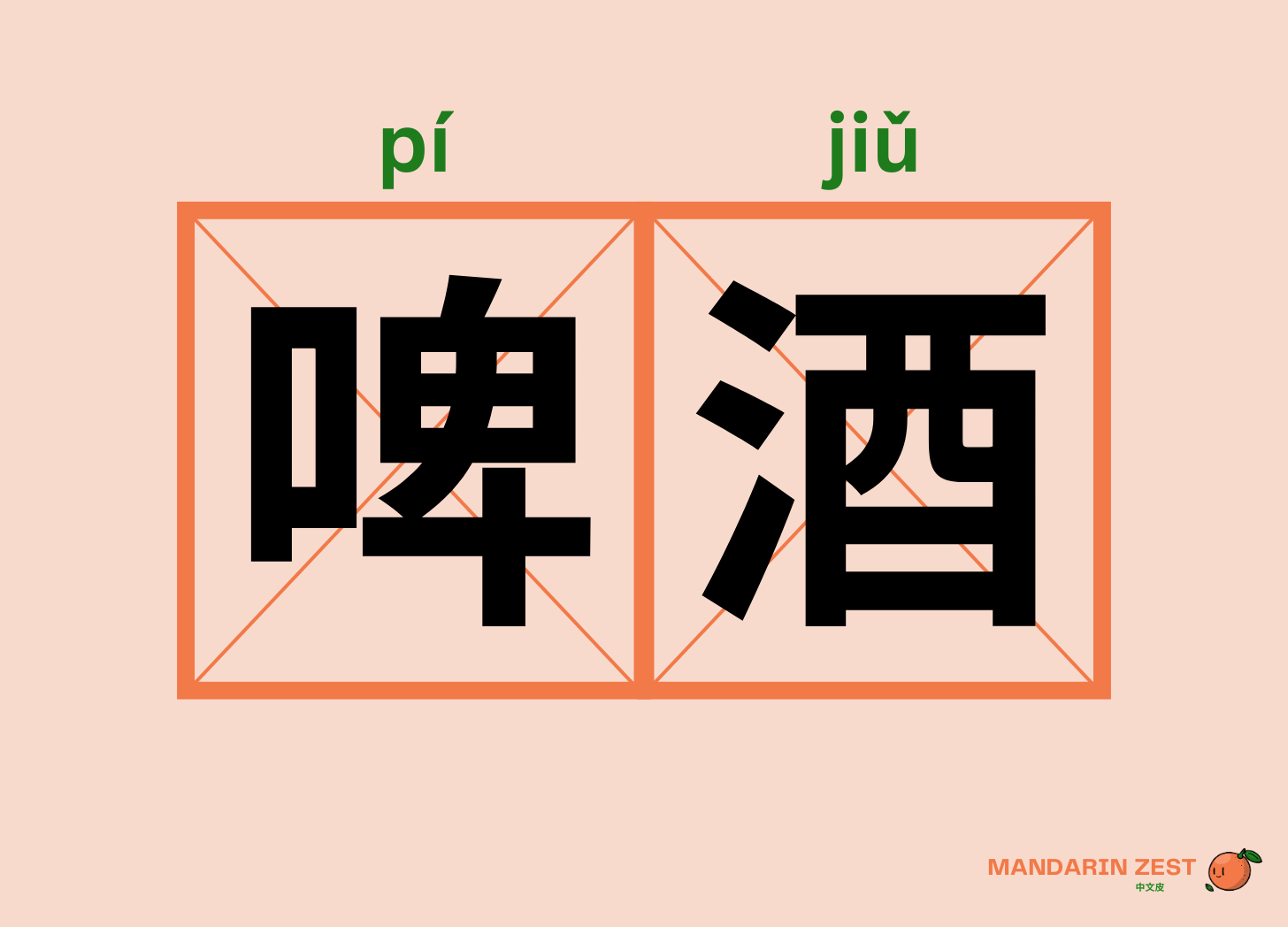How Did Tsingtao Beer Come to Be?
And the Origins of the Chinese Word for Beer
If you've ever been to a Chinese restaurant, chances are you've tried China’s most famous beer, Tsingtao Beer. But when and how did China start producing beer in the first place? Since the concept of beer only appeared a little more than a hundred years ago in China, where does the Chinese word for beer come from? Let’s find out!
自1903年建厂起,青岛啤酒逐渐从偏居一隅的小酒厂成长为远销全球120个国家,坐拥数十亿全球消费者的世界级啤酒品牌。通过重点打造青岛国际啤酒节等活动IP,青啤与城市发展同呼吸,向世界展示了青岛的开放与包容,打造出了具有世界知名度的“中国啤酒之都”。
逐渐 (zhújiàn): Gradually
偏居一隅 (piānjū yīyú): To remain in a corner; to occupy a small, isolated position
远销 (yuǎnxiāo): To be exported far away; to sell well in distant places
坐拥 (zuòyōng): To possess and enjoy (something significant or abundant)
Since its establishment in 1903, Qingdao Beer has grown from a small local brewery to a world-class beer brand sold in 120 countries, with billions of global consumers. By creating signature events like the Qingdao International Beer Festival, Qingdao Beer has evolved in step with the city’s development, showcasing Qingdao’s openness and inclusiveness to the world, and establishing itself as the globally renowned “Beer Capital of China.”
有着120年悠久历史的青岛啤酒,参与并推动了中国啤酒工业从无到有,由大而强的奋进历程,外国人将啤酒传到中国的青岛,中国人却通过代代传承创新赋予了啤酒新的内涵,为其打上了中华文化的独有印记。
从无到有 (cóng wú dào yǒu): From nothing to something; to develop from scratch
传承创新赋予 (chuánchéng chuàngxīn fùyǔ): To inherit and innovate, giving (something new meaning or value)
内涵 (nèihán): Connotation; inner meaning or quality
With its 120-year-long history, Qingdao Beer has contributed to and driven the development of China’s beer industry, evolving from nothing to prominence. While foreigners introduced beer to Qingdao, China, generations of Chinese people innovated and redefined beer, endowing it with unique elements of Chinese culture.
1903年,德、英两国商人联手投资,在今天的登州路上建造了日耳曼啤酒公司青岛股份公司,这是中国成立最早的啤酒企业之一,也就是青岛啤酒的前身。
In 1903, German and British businessmen jointly invested in building the German Brewery Qingdao Joint-Stock Company on today’s Dengzhou Road, which was one of China’s earliest beer enterprises and the predecessor of Qingdao Beer.
1979年,青岛啤酒踏上对外开放的新征程,成为改革开放后第一家对外出口的中国啤酒品牌。如今,青啤全球销量稳居中国啤酒出口第一,出口量占全国出口总量的一半以上,行销全球120多个国家和地区。
稳居 (wěn jū): To firmly occupy (a position); to remain steadily in place
In 1979, Tsingtao Brewery embarked on a new journey of openness, becoming the first Chinese beer brand to export after the start of China’s reform and opening-up. Today, Tsingtao consistently leads China’s beer exports, accounting for more than half of the nation’s total export volume, and is sold in over 120 countries and regions worldwide.
The Origins of the Word for Beer in Chinese
青岛人说:德国人开了厂,Bier音译为“皮酒”,后来演化为“脾酒”,又变为“啤酒”。
Tsingtao locals say: When Germans opened the brewery, the word "Bier" was transliterated as "皮酒" (pí jiǔ). Over time, it evolved into "脾酒" (also pí jiǔ) and eventually became "啤酒" (pí jiǔ).
哈尔滨人说:毛熊开了厂,Pivo音译为“皮酒”,后来演化为“脾酒”,又变为“啤酒”。
Harbin locals say: When the Russians (often referred to as "毛熊," meaning "bear") opened their brewery, the word "Pivo" was transliterated as "皮酒" (pí jiǔ). This too evolved into "脾酒" and eventually "啤酒."
当年李鸿章曾率团遍访欧洲,在德国喝到了“Bier”,一时听出“Piya”的音,便对随访人员说:不错不错,这个叫做“皮酒”的东西很好喝,后变为“啤酒”。
率团 (shuài tuán): Lead a delegation
遍访 (biàn fǎng): To visit everywhere; to visit widely
随访人 (suí fǎng rén): Accompanying person; person accompanying on a visit
Back in the day, Li Hongzhang, during his diplomatic mission across Europe, tasted "Bier" in Germany. Hearing it pronounced somewhat like "Piya," he remarked to his entourage, "Not bad, not bad. This '皮酒' (pí jiǔ) is quite tasty." Over time, this term transformed into "啤酒."
所以说,“啤酒”的名称是由外文的谐音译过来的,译成中文“啤”字创造了这个外来语文字,又由于具有一定的酒精,故翻译时用了“啤酒”一词,一直沿用至今。正因为啤酒以大麦芽为主要原料,所以日本人也称啤酒为“麦酒”。
大麦芽 (dà mài yá): Barley malt
In conclusion, the term "啤酒" (beer) is a transliteration of foreign words. The creation of the character "啤" brought this loanword into Chinese. Since the drink contains alcohol, the term "啤酒" (beer) was adopted and has been used ever since. Because beer is primarily made from barley malt, the Japanese also refer to it as "麦酒" (mugi-shu), meaning "barley wine."
Have you tried Tsingtao Beer? Do you like it?
Antoine & Dorota







Thanks for the lesson! The Qingdao beer festival is something else!